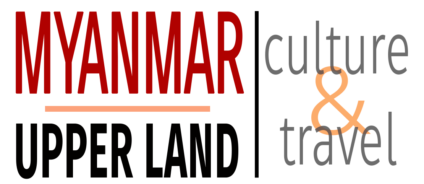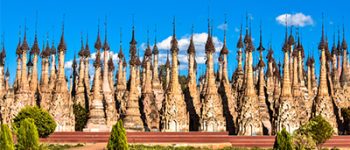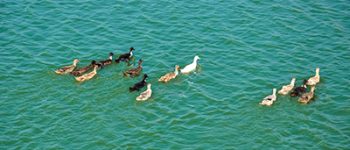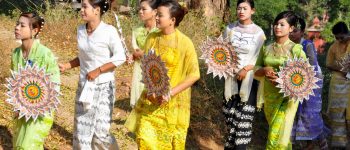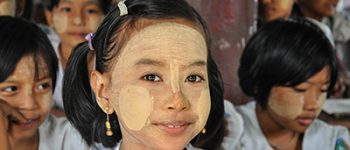Sustainable Tourism Mission
We, Myanmar Upper Land | culture & travel committed to sustaining the culture, heritage and environment of our region while at the same time promoting economic maturity and social wellbeing through tourism.
Sustainability and Myanmar Upper Land | culture & travel
Sustainability is most often defined as meeting the needs of the present without compromising the understanding of future generations to meet theirs. It has three main pillars: economic, environmental, and socio-culture, and those are also interlinked: they affect each other. These three pillars are informally referred to as people, planet, and profits.
In accordance with the theme of the World Tourism Organisation, which is “Sustainable Tourism – a Toll for Development”, Myanmar Government has affirmed a policy of sustainable development of tourism.
As Tour Operators in Myanmar, we do not pretend that we have now all the solutions to the challenge of delivering a more sustainable holiday product to our customers. Mostly we are at the start of this process and taking critical first steps in our tourism industry. Of course, we have a duty of care towards the environment and society in which we operate and to encourage suppliers to actively work with us to promote social responsibility and excellent environmental performance.
However, the full range of issues in those practices will not be relevant to all suppliers which we deal in our area because:
- It is aimed at a wide range of suppliers, from minimal operations with only one or two letting rooms to significant hotel developments with hundreds of rooms.
- Our suppliers operate in a variety of peoples, and priorities differ very significantly by destination.
- Due to local infrastructure or the relative cost of technology in Myanmar, some actions will be relevant in some areas and not in others.
Until now, MUL adopts a flexible approach according to the destination and size of their business.
Anyhow, Myanmar Upper Land | culture & travel based in Mandalay, where the hub of Myanmar culture is also committed to growing our community sustainably. This commitment to sustainability extends to environmental, social, and tangible and Intangible culture Heritages. In sharing or transferring a diverse culture, we are continually developing the new sustainable initiative.
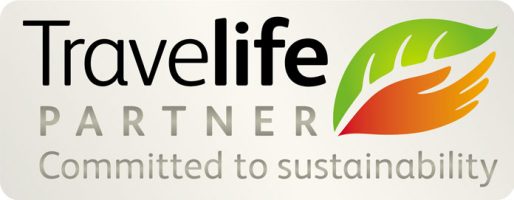
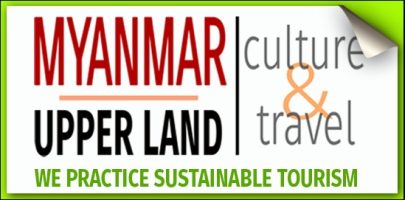
What we commit to “Environmentally Sustainable Practices”
MUL encourage the highest benefits to the environment and to minimize negative impacts on conserving resources, reducing pollution and conserving biodiversity, ecosystems, and landscapes.
Carbon Offsetting
We will offset the carbon generated by domestic flights by planting a tree for every sustainable committed tourist booking. (Reference local tree planting scheme).
Reduce Water consumption
- We invite visitors/guests to save water.
- We ensure there are no leaks in the water pipes system.
- Don’t keep taps running.
Reduce energy consumption by:
- Replacing all light bulbs with energy efficient light bulbs
- Implement a ‘switch off’ policy in the office for lights, air conditioning, and office equipment.
- Ensure that all equipment works efficiently through regular, systematic maintenance programs.
Waste
- Reduce reliance on plastic bags in the office and operation. Support locally made reusable bags.
- Provide reusable water bottles, cups, and lunch containers.
- Use environmental or natural cleaning products to reduce pollution.
- Measure, record, and monitor the number of bags of waste each week.
- Print on both sides of the paper.
- Purchase recycled or sustainable certified paper
What we aim in “Economically Sustainability Practices”
MUL encourage the maximize social and economic benefits to the local community and minimize negative impacts.
Community
- Support local purchasing when quality, service, availability, and price allow.
- Provide donations to local community causes
- Work with social enterprises or local producers to provide giveaways for clients or local souvenirs
Suppliers
MUL informed all suppliers (Accommodation, Transportation, and other) of our commitment to Travelife’s Sustainability Management. Regarding our commitment to transportation,- MUL performed a set procedure for Sustainable Transport Planning when we design the tours itinerary for the travelers in the future. We have maps and timetables for visitors to encourage walking and the use of public transport.
- We aim to provide tourists with relevant information to encourage responsible tourism behavior.
- We only use hotels that adhere by local Myanmar labor laws and do not engage in any activity that is in harmful to children e.g. labor or child sex tourism.
What we attempt to “Socio-cultural Responsible Practices”
MUL encourage the most benefits to tangible and intangible cultural heritage and to minimize negative impacts. We actively support initiatives for social and infrastructure community development.
Here are some specifics:
- Try working exclusively with socially responsible suppliers who care about the impact of our operations
- Operating sensitive adventures that view local communities as our partners
- Supporting local economies by employing local guides and using local restaurants and accommodations
- Offering the means for local small entrepreneurs to develop and sell sustainable products that are based on the area’s nature, history, and culture (including food and drink, crafts, performance arts, agricultural products, etc.).
- Following established guidelines or a code of behavior for visits to culturally or historically sensitive sites, in order to minimize visitor impact and maximize enjoyment.
- Tourist as well as the private and public sector need to respect the cultural heritage, traditions and beliefs of every individual in Myanmar.
- Abiding by all Myanmar labor laws.
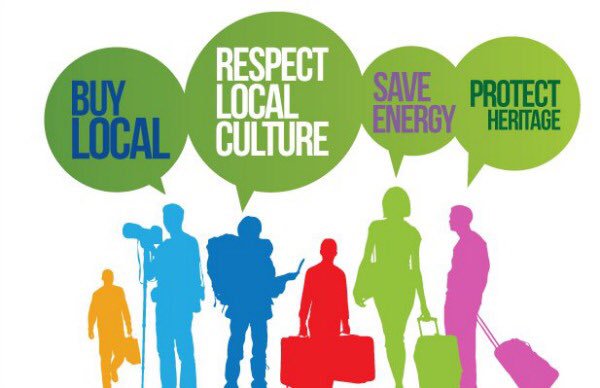
On Our Responsible Tours:
Responsible travel promotes the sustainable development of destinations tomorrow. Our visitors (on tours) to consider the importance of sustainability and to join or participate when they are with MUL’s Sustainable Programs. We are attempting into all times to adhere to the following codes in our operations.
- We will promote tourism that is economically productive, socially responsible, and environmentally friendly.
- We will encourage considerate, culturally, and environmentally conscious habits amongst those who travel with us.
- We will bear in mind the rights of the local population and respect local laws and customs.
- We will attempt to involve the host population in all tourism projects that we may induce.
- We will provide regular and ongoing training to our staff in the principles and practices of responsible tourism.
- We will assure that our tour leaders and guides pass on to our travelers’ insight and understanding of the host destination.
- We will insist that our suppliers in the host destinations meet our own high environmental and social standards, and that, where necessary, they are demanded to get training to improve their understanding of the issues.
Goals
- to Reduced energy and water consumption costs by more than 20 %
- to Reduced solid waste and wastewater disposal costs by more than 15 %
- to improve the quality of the environment in which we operate
- to refine staff motivation
- to enhance community relations
Welfare & Socio-Cultural Support of Myanmar Upper Land | culture & travel
As we are with the Professional culture background, since 2009, we look for different cultural projects to support the local communities together with International Organization like Prince Claus Fund, from the Netherland, Goethe Institut – Yangon, SDC (Swiss). These projects are often centered on disaster relief or the restoration, safeguarding the tradition, and the development of social and cultural awareness. For more references…
For further information on our sustainability policy, commitments and actions,
please contact -
+95(0) 2 40 65011 (office hours)
email: office@myanmarupperland.com.
Sustainable Team
Myanmar Upper Land | culture & travel
